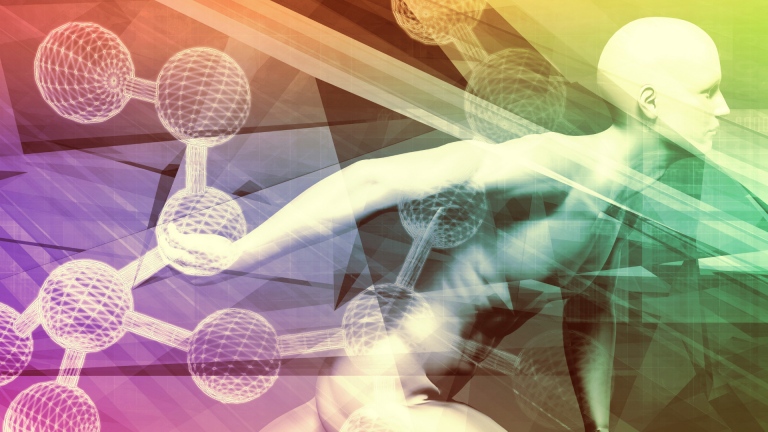Testosterone, the primary male sex hormone, plays a vital role in men’s health, influencing muscle mass, bone density, body composition, libido, mood, and overall well-being. Unfortunately, testosterone levels often decline with age or due to various lifestyle factors. As a result, many men seek ways to increase their testosterone levels naturally, and supplements can be a helpful addition to a healthy lifestyle. This guide will discuss the best supplements for testosterone health, their benefits, and how to incorporate them into your daily routine.
D-Aspartic Acid (D-AA)
D-aspartic acid, an amino acid, has been shown to play a crucial role in testosterone production and regulation. Research suggests that D-AA can help stimulate the release of luteinizing hormone (LH), which stimulates testosterone production in the testes.
Benefits:
- Increases testosterone production by stimulating the release of luteinizing hormone
- Supports healthy sperm production and fertility
- It may enhance athletic performance and muscle growth
Sources: D-aspartic acid supplements are available in powder or capsule form, and following the manufacturer’s dosage guidelines is recommended.
Fenugreek
Fenugreek, an herb commonly used in Indian cuisine and traditional medicine, has been found to have testosterone-boosting properties. Its active compounds, called furostanolic saponins, have been shown to support healthy testosterone levels by inhibiting the enzyme responsible for converting testosterone to estrogen.
Benefits:
- Supports healthy testosterone levels by inhibiting the conversion to estrogen
- It may improve libido and sexual performance
- Enhances muscle strength and recovery
Sources: Fenugreek supplements are available in capsule, powder, or extract forms. Look for standardized extracts with a high concentration of furostanolic saponins for optimal results.
Zinc
Zinc, an essential trace mineral, is critical in testosterone production. Zinc deficiency can reduce testosterone levels, negatively impacting overall health and well-being.
Benefits:
- Supports testosterone production and regulation
- Enhances immune function
- Promotes reproductive health and sperm quality
Sources: Zinc-rich foods include oysters, red meat, poultry, beans, nuts, and whole grains. Zinc supplements are also available in various forms, such as zinc gluconate, zinc citrate, and zinc picolinate.
Vitamin D
Vitamin D, a fat-soluble vitamin, has been linked to testosterone production and overall hormone health. Research has shown that men with sufficient vitamin D levels tend to have higher testosterone levels than those deficient.
Benefits:
- Supports testosterone production and regulation
- Strengthens the immune system
- Improves mood and cognitive function
- Promotes bone and muscle health
Sources: Vitamin D is naturally produced in the skin upon exposure to sunlight. Fatty fish, fortified milk, and egg yolks also provide small amounts of vitamin D. Supplements in the form of vitamin D3 are widely available and recommended, especially for those with limited sun exposure or existing deficiencies.
Ashwagandha
Ashwagandha, an adaptogenic herb, has been used in traditional Ayurvedic medicine for centuries to treat various health issues. It is known for its ability to help the body adapt to stress, which can positively impact testosterone levels.
Benefits:
- Supports healthy testosterone levels by reducing cortisol, the stress hormone
- Enhances energy levels and reduces fatigue
- Improves cognitive function and mood
- Boosts sexual function and fertility in men
Sources: Ashwagandha is available in various supplement forms, including capsules, powders, and tinctures. Standardized extracts containing a specific percentage of the active compounds, called withanolides, are recommended for consistent results.
Tongkat Ali
Tongkat Ali, also known as Eurycoma longifolia or Malaysian ginseng, is a Southeast Asian herb traditionally used as an aphrodisiac and testosterone booster. Research has demonstrated its ability to increase testosterone levels and support overall hormone health.
Benefits:
- Increases testosterone levels and promotes hormonal balance
- Improves libido and sexual performance
- Enhances energy levels and athletic performance
- Supports muscle growth and strength
Sources: Tongkat Ali supplements are available in various forms, such as capsules, powders, and extracts. Look for a high-quality, standardized product to ensure potency and effectiveness.
Magnesium
Magnesium is an essential mineral involved in over 300 biochemical reactions in the body, including hormone production and regulation. Research suggests that magnesium can help increase free testosterone levels by binding to sex hormone-binding globulin (SHBG), which regulates testosterone availability in the body.
Benefits:
- Supports testosterone availability by binding to SHBG
- Improves sleep quality, which can positively impact testosterone levels
- It helps maintain healthy blood sugar levels
- Supports cardiovascular and bone health
Sources: Magnesium-rich foods include leafy green vegetables, nuts, seeds, and whole grains. Supplements such as magnesium citrate, magnesium glycinate, or magnesium malate can also help increase magnesium intake.
Boron
Boron is a trace mineral shown to impact testosterone levels positively. Studies have found that boron supplementation can significantly increase free testosterone levels while decreasing SHBG and estradiol levels, a form of estrogen.
Benefits:
- Increases free testosterone levels by reducing SHBG and estradiol levels
- Supports bone health and density
- Enhances cognitive function and memory
- Promotes joint health and reduces inflammation
Sources: Boron is found in various foods, such as avocado, raisins, and almonds, but in relatively small amounts. Boron supplements are available in capsule or tablet form, making it easier to achieve an effective dosage.
Selenium
Selenium is an essential trace mineral that plays a vital role in various physiological processes, including testosterone production. It has antioxidant properties, which help protect cells from damage, and supports proper thyroid function, which is closely related to hormone health.
Benefits:
- Supports testosterone production and regulation
- Promotes healthy thyroid function and hormone balance
- Enhances immune system function
- Offers antioxidant protection to cells
Sources: Selenium-rich foods include Brazil nuts, fish, poultry, and whole grains. Selenium supplements are also available, often in the form of selenomethionine or selenium yeast, which have higher bioavailability than other forms.
Probiotics
Probiotics are beneficial bacteria that promote a healthy gut microbiome, which is crucial in hormone regulation. A balanced gut microbiome can help maintain optimal testosterone levels by facilitating proper digestion, absorption of nutrients, and removal of toxins that can negatively impact hormone health.
Benefits:
- Supports testosterone health by promoting a balanced gut microbiome
- Enhances digestion and nutrient absorption
- Boosts immune function
- It may improve mood and mental health
Sources: Probiotic-rich foods include yogurt, kefir, sauerkraut, kimchi, and other fermented foods. Probiotic supplements with a variety of strains and a high number of colony-forming units (CFUs) are also available.
Conclusion
Maintaining healthy testosterone levels is crucial for men’s overall well-being, and supplements can provide valuable support in achieving hormonal balance. It’s important to note that supplements should not replace a balanced diet, regular exercise, and a healthy lifestyle. One of the things you may want to consider is taking a good all-in-one supplement; some options are protein or superfood base supplements such as Ka’chava or Maximum Vibrance or other healthy and good-tasting protein and vitamin combinations. Before starting any new supplement regimen, it’s crucial to consult with a healthcare professional to determine the most appropriate approach for your individual needs. With the right combination of supplements, diet, and lifestyle changes, you can support your testosterone health and enjoy improved energy, vitality, and overall wellness.
**NOTE** The content in this blog is subject to interpretation and is the opinion of the content writer. We do not claim it to be fact. We encourage you to consult a medical doctor before taking any prescribed medications or supplements.
Conclusion
Supporting Hormones health is essential for overall well-being and vitality. By incorporating regular exercise, proper nutrition, adequate sleep, stress management techniques, and IV therapy, you can help maintain optimal testosterone levels and lead a healthy, balanced life. Always consult a healthcare professional before making significant changes to your lifestyle or starting any new treatments to ensure they suit your needs.
At AAI Rejuvenation Clinic, we advise anyone to think seriously about beginning Hormone treatment if there is no medical need for it. However, we will take every precaution to ensure that you read your program’s positive benefits by providing the latest at-home hormonal mouth-swab testing to ensure we are continually monitoring your progress and aware of any adverse side effects. Fill out the Medical History Form, or if you need more information, call us at (866) 224-5698 or (866) AAI-Low-T.



